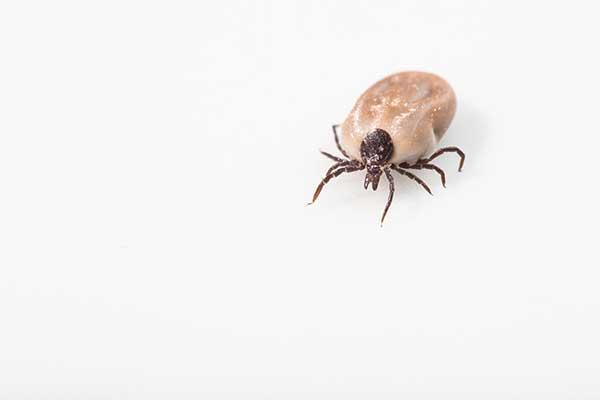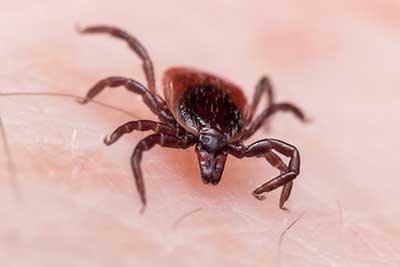Powassan Virus: A Tick Borne Disease

Infections from diseases transmitted by ticks are on the rise, and the symptoms can be serious. Lyme disease and Rocky Mountain spotted fever are the best-known tick-borne diseases, but recently the less common Powassan virus has become a cause for concern. Although Powassan virus is still rare, experts warn that the symptoms can be serious, or even fatal. Because of the severity, it is important to know the symptoms and how to avoid infection.
Transmission of Powassa Virus
Powassan virus is named for the Ontario town in which it was discovered in

1958; it is still primarily found in Canada, as well as the United States Great Lakes and northeastern states. The virus is found in small rodents, transmitted to any of six species of ticks which feed on the rodents and then to humans who are bitten by ticks. The virus is not transmitted from person to person. While transmission of Lyme disease may take up to 48 hours after a tick attaches, experts think that Powassan virus transmission could occur within less than 12 hours.
Testing for Powassan Virus
Powassan virus infections are rare; on average, about seven people per year are diagnosed. The number of infections may be underreported since many people show no symptoms of the disease. If symptoms do occur, they could appear as soon as a week or as late as a month after the tick bite. Tests of blood or the fluid surrounding the spinal cord are used to confirm the infection.
Symptoms of Powassan Virus
The severity of symptoms varies. Because the virus infects the central nervous system, symptoms can be serious, leading to brain inflammation (encephalitis) and inflammation of the membranes which surround the brain and spinal cord (meningitis).
Symptoms may include:
- headache
- fever
- nausea and vomiting
- difficulty speaking
- confused behavior
- muscle weakness
- and loss of coordination
Like many diseases transmitted by ticks, Powassan virus can cause permanent health effects. According to the Centers for Disease Control, roughly 50 percent of those who contract the disease continues to have headaches and memory problems. In 10 percent of Powassan virus cases, encephalitis leads to death.
Unfortunately, there is no treatment for Powassan virus infections.
People with severe symptoms may need to be:
- hospitalized
- receiving medications to reduce inflammation
- IV fluids
- respiratory care
Because of the severity of the disease and the lack of treatment options, avoiding infection is key, and this means avoiding tick bites.
- Avoiding wooded areas and tall grass prevents ticks from climbing aboard
- the use of insect repellent on clothes, shoes, and skin can discourage them
- Within a few hours of spending time outdoors in areas where ticks are present, it’s important to shower to remove hitchhikers and to do a full-body “tick check“.
- Keep in mind that some ticks can be as small as a poppy seed; they may be well-hidden in hair, armpits, or other areas. Remember to check pets and clothing for crawling ticks, too.
Powassan virus is still relatively rare, so there is no need to panic after a tick bite, especially if you do not live in an area where the virus has been found. However, because of the potential severity of the symptoms, and because of the wide variety of other tick-borne diseases, it is important to take preventative measures to keep ticks from biting in the first place.




